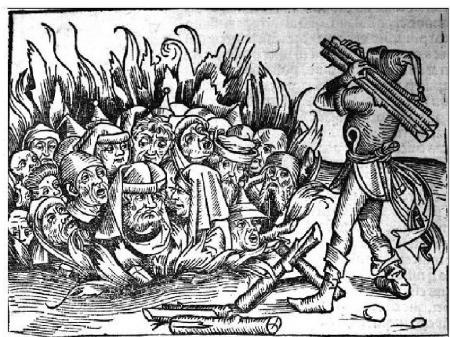That new and costly liquor called Eau de Peste
This, it will be said, is just George Sand, but should we also suspect the deposition of a man of the Right, Armand de Pontmartin? He said in his memoirs: “During the past week [cholera] recruited its victims only among the poor, and the number of its victims grew in frightening proportions... [The Parisian population] accused the rich, the nobles and the bourgeois, not only of not dying, but of poisoning the poor... They went down the aristocratic streets crying for death... We had reached the point of wishing for the death of a rich man.”
Baehrel, here, on class hatred and hatred of doctors, on accusations of poisoning and facts of plague, on being given the lie and giving back something else entirely
a plague victim pursues a “substantial citizen’s wife,” “a gentlewoman;” she falls and he embraces her: “He told her he had the plague and why should she not have it as well.” Another example: a man knocks, enters, and he “takes leave”: “I have got the sickness and shall die tomorrow night” the intruder declares who, in that “bourgeois” house, chose the moment “when the whole family was at supper.”
Subscribe to:
Post Comments (Atom)





1 comment:
Your post made me rethink of the article in today's paper.
"The likely origin of the plague in China has nothing to do with its people or crowded cities, Dr. Achtman said. The bacterium has no interest in people, whom it slaughters by accident. Its natural hosts are various species of rodent such as marmots and voles, which are found throughout China."
http://www.nytimes.com/2010/11/01/health/01plague.html?_r=1&src=me&ref=homepage
Post a Comment